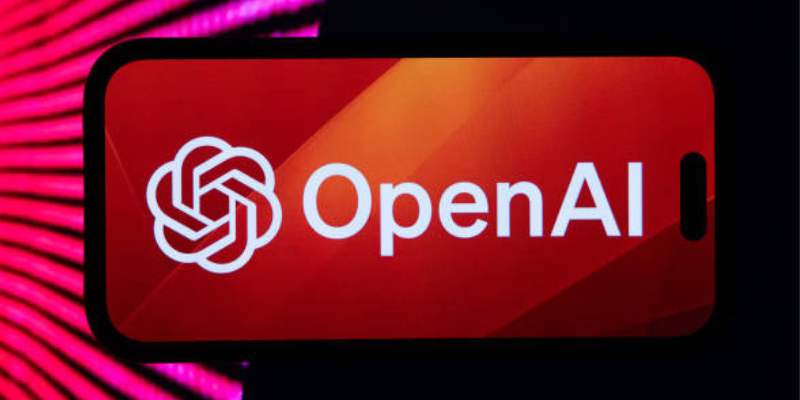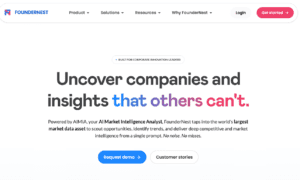OpenAI is in talks to raise up to $40 billion in a funding round that would lift the artificial intelligence company’s valuation to as high as $340 billion.
TakeAway Point:
- SoftBank will contribute $15 billion to $25 billion of the approximately $40 billion being invested in OpenAI, which is in negotiations to raise further financing at a valuation of up to $340 billion.
- Following the company’s release of fourth-quarter profits that exceeded both the top and bottom lines, Meta’s stock was marginally higher in after-hours trade on Wednesday.
- Sales increased 21% year over year in the fourth quarter, and net income increased 49% from $14 billion to $20.8 billion.
- “We now have a U.S. administration that is proud of our great firms and prioritises American technology winning,” Zuckerberg stated during a conference call with observers.
$340 Billion For AI Startup
Masayoshi Son’s SoftBank would lead the round, contributing between $15 billion and $25 billion, according to two people familiar with the negotiations who asked not to be named because the talks are ongoing. SoftBank would surpass Microsoft as OpenAI’s top backer.
Part of the funding may be used for OpenAI’s commitment to Stargate, a joint venture between SoftBank, OpenAI and Oracle that was introduced by President Donald Trump last week, the sources said. The plan calls for billions of dollars to be invested in U.S. AI infrastructure.
OpenAI was last valued at $157 billion by private investors. In late 2022, the company launched its ChatGPT chatbot and kicked off the boom in generative AI. OpenAI closed its latest $6.6 billion round in October, gearing up to aggressively compete with Elon Musk’s xAI, as well as Microsoft, Google, Amazon and Anthropic.
Meanwhile, Chinese startup lab DeepSeek is blowing up in the U.S, presenting fresh competition to OpenAI. DeepSeek saw its app soar to the top of Apple’s App Store rankings this week and roiled U.S. markets on reports that its powerful model was trained at a fraction of the cost of U.S. competitors.
At an event in Washington, D.C., on Thursday hosted by OpenAI, CEO Sam Altman said DeepSeek is “clearly a great model.”
“This is a reminder of the level of competition and the need for democratic Al to win,” he said. He said it also points to the “level of interest in reasoning, the level of interest in open source.”
Meta Shares Saw Increase On Revenue
Meta shares were up slightly in after-hours trading on Wednesday after the company reported fourth-quarter earnings that beat on the top and bottom lines.
Here is how the company did compared with estimates from analysts polled by LSEG:
Earnings per share was $8.02 vs. $6.77 expected; revenue was $48.39 billion vs. $47.04 billion expected
Meta CEO Mark Zuckerberg said he expects 2025 to redefine the company’s relationships with governments.
“We now have a U.S. administration that is proud of our leading companies, prioritizes American technology winning and that will defend our values and interests abroad,” Zuckerberg told investors on a call. “I am optimistic about the progress and innovation that this can unlock.”
Sales in the fourth quarter jumped 21% year over year while net income grew 49% to $20.8 billion, up from $14 billion a year earlier.
Meta said it expects first-quarter revenue to be in the range between $39.5 billion and $41.8 billion. The midpoint of that figure trailed analysts’ expectations of first-quarter revenue of $41.73 billion.
The company’s Meta AI chatbot surpassed 700 million monthly active users, Chief Financial Officer Susan Li told analysts. That is up from 600 million in December. Zuckerberg said he expects Meta AI to reach one billion users this year.
“Once a service reaches that kind of scale, it usually develops a durable, long-term advantage,” Zuckerberg told analysts on Wednesday.
Open-source AI models
The emergence of DeepSeek—a high-performing open-source large language model built by a Chinese lab for a fraction of the cost of its American counterparts—validates Meta’s commitment to an open-source approach to AI, Zuckerberg said. Meta has been pushing its family of Llama-branded LLM models as an open-source alternative to technologies from OpenAI and Google.
“There’s going to be an open-source standard globally,” he said. “For our own national advantage, it’s important that it’s an American standard.”
Meta has finished training a mini version of Llama 4, and training for a larger version of the LLM “is making great progress,” Zuckerberg said.
The company also reiterated Friday’s announcement that it would invest between $60 billion and $65 billion in capital expenditures in 2025 to fuel its artificial intelligence strategy. Zuckerberg said he continues to believe heavily investing in the company’s AI infrastructure will be a strategic advantage.
“It’s possible that we’ll learn otherwise at some point, but I just think it’s way too early to call that,” he said. “I would bet that the ability to build out that kind of infrastructure is going to be a major advantage for both the quality of the service and being able to serve the scale that we want to.”
Daily active people came in at 3.35 billion in the quarter, the company said. That is up from 3.29 billion the previous quarter. Wall Street was projecting 3.32 billion for the fourth quarter.
Outlook for 2025
The company’s fourth-quarter costs and expenses were $25.02 billion, representing a more than 5% increase from the prior year.
Meta did not provide a revenue outlook for 2025, but investments in the company’s core business “will give us an opportunity to continue delivering strong revenue growth throughout 2025,” finance chief Li said in a statement.
The company’s Reality Labs unit, which develops virtual reality and augmented reality technologies, logged an operating loss of $5 billion in the fourth quarter while generating $1.1 billion in sales.
Meta expects its total expenses for 2025 to come in between $114 billion and $119 billion, with the bulk of the spending related to its infrastructure costs, Meta said. The company plans to hire workers for infrastructure, monetization, Reality Labs, generative AI, regulation and compliance. Meta’s headcount grew to more than 74,000 at the end of December, up 10% year over year.



































